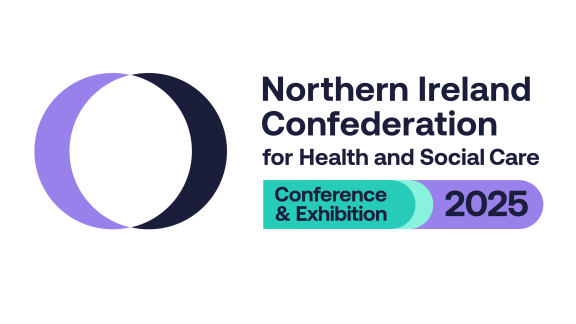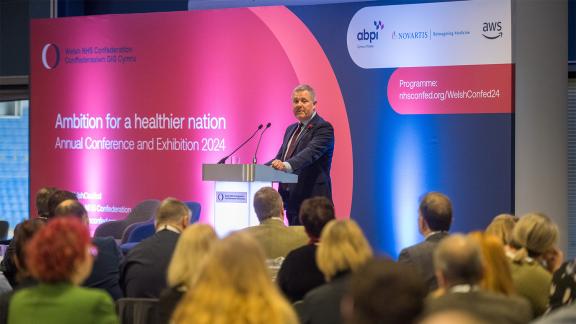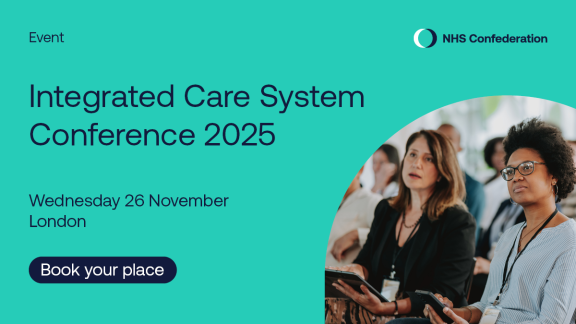Health and care sector latest developments

‘Innovator passport’ to speed up access to technology
The government has announced a new ‘innovator passport’, allowing NHS patients faster access to new technology.
In what is claimed as a major boost to the life sciences sector, technology that has been ‘robustly’ assessed will be more easily rolled out across the health service.
The new system aims to stop businesses deserting the NHS due to slow timelines and excessive bureaucracy.
The health secretary said this development means ‘patients will no longer have to face a postcode lottery for life-saving products’.
Matthew Taylor, chief executive of the NHS Confederation, said it was ‘a positive step towards reducing duplication, making innovation more agile and accessible, and streamlining how technology is rolled out across the health service.’
Health chiefs impose minimum waits
Health chiefs are quietly imposing minimum waiting times.
According to The Times, hospitals are being told that, for certain treatments, they will only be paid once patients have been waiting for at least three months.
Such a policy aims to reduce the overall number of payments, with local health bosses being told to ‘get a grip’ on overspending.
President of the Royal College of Surgeons, Tim Mitchell, has voiced opposition to this measure, arguing that ‘minimum waiting times risk distorting clinical priorities and leaving patients in unnecessary pain and anxiety.’
NICE to remove approval from scores of drugs for first time
The National Institute for Health and Care Excellence will withdraw its backing for a large number of drugs and other interventions which are now poor value for money in an unprecedented move set to be revealed in tomorrow’s ten-year health plan.
The move would end the NHS’s statutory mandate to supply the ‘retired’ medicines, treatments, medical devices and procedures. Currently, NICE does not remove approval for interventions once they have passed its appraisal process, even when they are no longer recommended as being clinically and/or cost-effective. HSJ reports that NICE has been asking to be allowed to withdraw approvals for years, but lobbying from the pharmaceutical sector led the conservative government to not act.
The government would instead develop a ‘single national formulary’ (SNF) to encourage clinicians to prescribe in the most cost-effective way. The NHSE/DHSC will ‘encourage’ prescribers to comply with the SNF. However, clinicians will retain autonomy over decisions for individual patients as long as they act in line with NICE guidance.
New measures set out to support nurses
Wes Streeting has announced a set of measures to better support nurses.
Writing for the i Paper, the health secretary explained that nurses will have access to faster expenses payments, increased community training, and better hospital food.
Streeting added that red tape will be cut so nurses ‘can start on wards as soon as possible after finishing training’.
Life sciences plan delayed
The government's plan for the life sciences sector has been delayed.
According to the Financial Times, the plan was initially supposed to be released on Monday but has been pushed back due to disagreements over the Voluntary Scheme for Branded Medicines Pricing, Access and Growth (VPAG).
Under the current scheme, the pharmaceutical industry is required to pay 22.9 per cent of its UK drug sales back to the government.
The government claims that a better offer has been made to the Association of the British Pharmaceutical Industry, and the ball is in their court.
Meanwhile, sources close to the industry criticised the government's approach, explaining that the sector is still waiting for a better offer.
Starmer’s gutted welfare bill limps through
Keir Starmer was forced to gut the main money-saving component of the welfare bill last night to get it over the line in the face of a large-scale rebellion.
Following ‘intense talks’ with Labour rebels, The Guardian reports, the Deputy Prime Minister delivered a major concession, meaning the tightening of eligibility for the PIP benefit will no longer go ahead.
This leaves the Chancellor with at least a £4.5 billion hole to fill, with The Times reporting the U-turn could even end up costing the government overall. The original bill was intended to generate £5 billion in savings.
A total of 49 Labour MPs voted against the bill, according to the Financial Times, despite a concession that would mean any changes to the PIP criteria would only follow the conclusion of a review being led by Disabilities Minister Sir Stephen Timms.
In a Work and Pensions Committee meeting he attended last week, he admitted that fundamental changes to the PIP assessment are a ‘long-term exercise’, requiring consultations.
Just two days before the anniversary of Starmer’s premiership, the climbdown underlines a stark contrast to his sweeping to power with a 174-seat majority and calls into question his ability to get through tough decisions, with Shadow Work and Pensions Secretary Helen Whately declaring that ‘the economic credibility of this government has collapsed.’
Obesity crisis costs £126 billion a year according to study
Far higher than previous estimates, Frontier Economics have concluded that the UK’s obesity epidemic is costing the entire economy £126 billion annually.
The calculations consider cost of NHS care (£12.6 billion), years spent in poor health (£71.4 billion) and economic damage (£31 billion), The Guardian reports.
Wes Streeting said that more people will be able to access weight management services as part of the ten-year health plan.
Alcohol advertising ban dropped
Following backlash from business and treasury minsters over concerns of the impact on the economy, plans to ban alcohol advertising have been dropped.
The Times reports proposals to mandate health warnings on drinks bottles were ‘vetoed at an early stage’, along with plans to include a minimum unit price for alcohol.
Jem Roberts of the Institute of Alcohol Studies condemned the news, pointing to a ‘baffling contradiction at the heart of a plan meant to prioritise prevention.’



